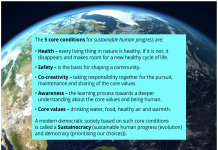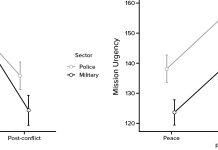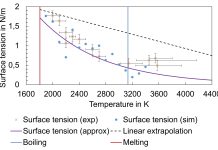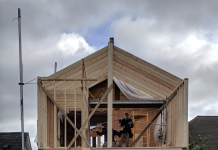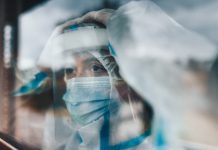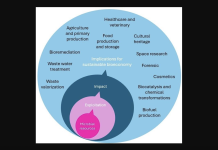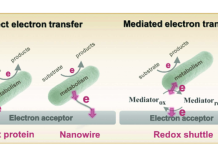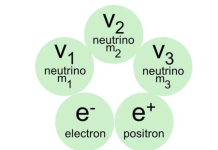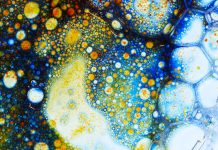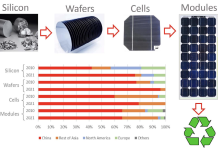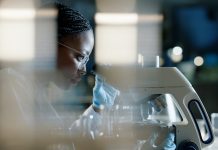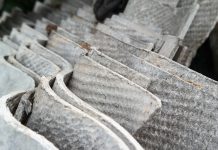Open Access Government produces compelling and informative news, publications, eBooks, and academic research articles for the public and private sector looking at health, diseases & conditions, workplace, research & innovation, digital transformation, government policy, environment, agriculture, energy, transport and more.
Home 2024
Archives
ML tools and systems models for WEFE nexus policy formulation and impact assessment
Experts from IHE Delft Institute for Water Education and Eurecat, Centre Tecnològic de Catalunya, guide us through the use of machine learning tools and systems models to inform WEFE nexus policy formulation and impact assessment.
Our sustainable human development as a co-operative society
Jean-Paul Close is the Founder of STIR Foundation, which stands for Sustainocracy, Transformation, Indexation, and Research. Here, he shares how this organization works to develop local holistic solutions to global problems using a sustainocratic ideology.
Forging unity: Interagency collaboration in hybrid warfare
Jostein Mattingsdal explores leadership’s critical role in maximizing interagency collaboration’s effectiveness in hybrid warfare scenarios.
A mathematical mindset approach to student learning
Jo Boaler, Nomellini and Olivier Professor in the Graduate School of Education (Mathematics) at Stanford University, explores a mathematical mindset approach to student learning.
Understanding high-temperature material properties
Prof Dr-Ing. Jörg Volpp, Associate Professor from University West, Trollhättan, Sweden, states that understanding metal surface tension at high temperatures will increase process understanding to benefit European Union metal processing and manufacturing industries.
On the origin of consciousness
Dr Peter Verheyen from the Sola Society & Academy at Vienna University examines the origin of consciousness and various ways in which information serves as the fundamental building block of the universe.
Modern architecture: A house deconstructed
Mark Jarzombek and Vikramaditya Prakash, Co-Founders of the Office of (Un)Certainty Research (a collaboration dedicated to rethinking modern architecture), take us on a journey of a deconstructed house.
Innovative ways of dealing with unforeseen events
Dorothy Sutherland Olsen and Lisa Scordato from the Nordic Institute for Studies of innovation, research and education, explore innovative ways of dealing with unforeseen events.
SUS-MIRRI.IT: How microbial culture collections hold up a more sustainable, competitive, and resilient bioeconomy
Marino Moretti and Giovanna Cristina Varese, Project Manager and Scientific Coordinator, respectively, of the EU-funded project SUS-MIRRI.IT, on behalf of all project partners, explain how safeguarding microbial biodiversity is extremely paramount for the future of our planet.
Microbial extracellular electron transfer in the human gastrointestinal tract
Gratian Ting and Arpita Bose from Washington University in St. Louis discuss the fascinating role that extracellular electron transfer plays within the human gut.
How positron and electron reactions shape the universe we live in
Constantinos G. Vayenas from the University of Patras, Academy of Athens explores how positron and electron catalysis of neutrino hadronization has created the mass of our universe.
Mechanical energy at the origins of life
Did mechanical energy power life’s origins before chemical energy such as ATP was available?
Electric-field nanobubbles: A step change in nanobubble engineering, and its “coming of age”
Niall J. English, from Chemical Engineering at University College Dublin, discusses how electric-field nanobubbles have displaced their mechanically-generated counterparts in performance and sustainability.
Can Europe recover its photovoltaic manufacturing capacity?
Antonio Urbina, from the Department of Sciences and Institute for Advanced Materials and Mathematics (INAMAT2), Universidad Pública de Navarra (UPNA), based at Pamplona in...
The vital role of sustainable chemistry
Prof. Dr. Cecilia Van Cauwenberghe, PhD, MSc, BS, MBA, Research Director at Everest Group, sheds light on sustainable chemistry, including how breakthrough innovations drive global change.
Large-scale data fusion in astronomy
Peter Melchior, Assistant Professor of Statistical Astronomy from Princeton University, provides a compelling analysis of large-scale data fusion in astronomy.
A century of NAD+ insights drives aging science and solutions innovations
Dr. Rebecca Crews from Renue By Science, LLC, outlines a century of NAD+ insights driving aging science and, innovative solutions and much more.
Asbestos disease pathogenesis: The long and short of it
Jean Pfau and Kinta Serve explore a critical and novel hypothesis concerning the size of fibers in asbestos disease pathogenesis.
Floreon technology, redefining polylactic acid
Dr Andrew Gill, CTO, and Dr Sandrine Garnier, CEO of Floreon Technology Ltd., explain how the company is redefining Polylactic Acid, starting with who they are and what they offer.
Fusion propulsion for exploring the solar system and beyond
Dr Kelvin F Long, Aerospace Engineer and Astrophysicist, leads the Interstellar Research Centre, a division of Stellar Engines Ltd. He argues that fusion propulsion will enable the full exploration of the solar system and beyond.


